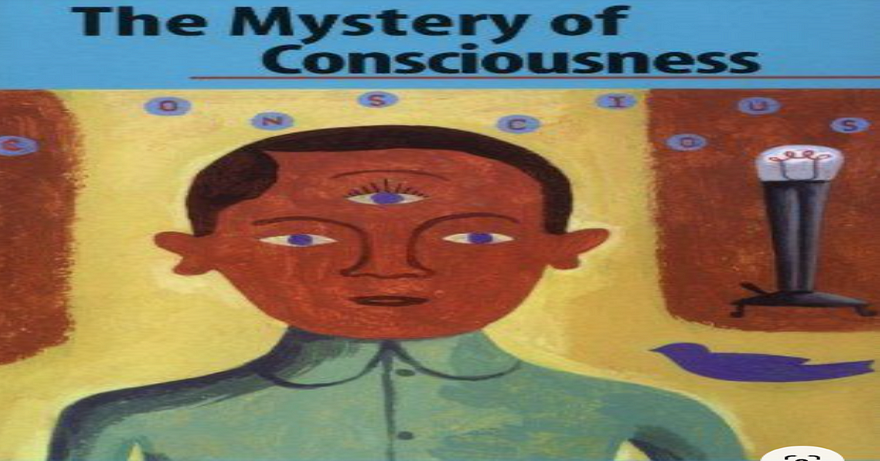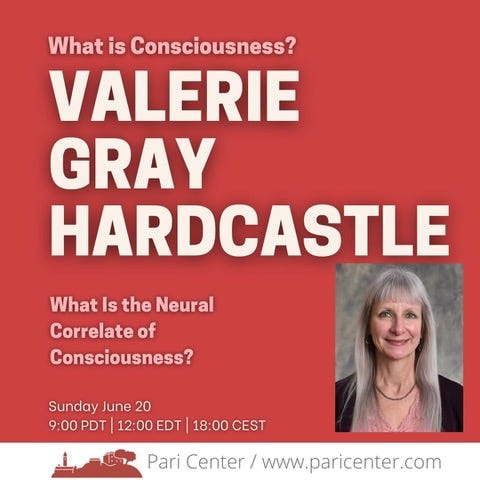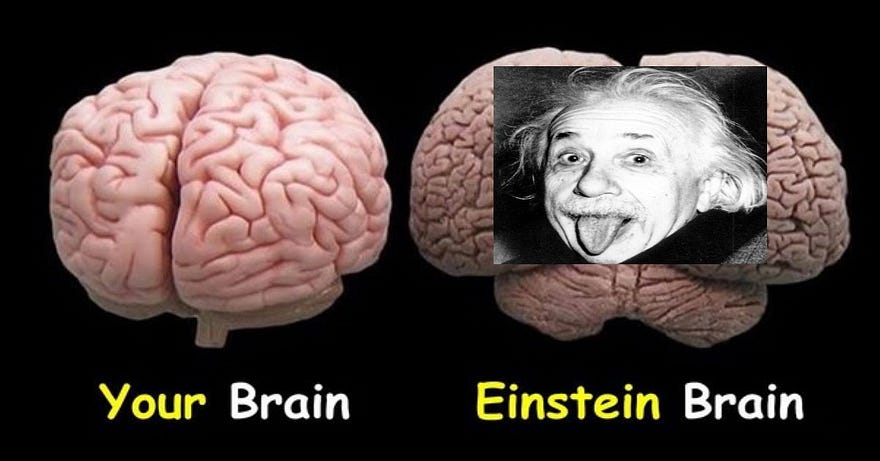The philosopher Valerie Hardcastle tackles the mysterian’s questions, “Why is water H₂O?”, “Why is water wet?” and “Why couldn’t water be XYZ?”. Gordon Park Baker once stated that “the unexamined question is not worth answering” and that “questions, just as much as assertions, carry presuppositions”. So can we apply Baker’s words to this mysterian’s questions?

This essay is primarily about Valerie Gray Hardcastle’s analysis of what she calls a “water-mysterian” and the latter’s philosophical position on water’s constitution and wetness. (This analysis is found in Hardcastle’s paper ‘The Why of Consciousness: A Non-Issue for Materialists’, which was published in the Journal of Consciousness Studies.)

The American philosopher Valerie Gray Hardcastle discusses the views of a water-mysterian because such a person is meant to be equivalent to a (well) consciousness-mysterian (see ‘New Mysterianism’). That is, mysterianism about water is supposed to be analogous (or simply comparable) to mysterianism about consciousness. Hardcastle’s example of water is, therefore, simply used to get the point across.
To show that all this is really about consciousness, on a page after all the quotes used from Hardcastle in this piece, she explicitly tells us that we have
“a good reason to think that the mind is nothing more than activity in the brain”.
More relevantly, Hardcastle tackles the water-mysterian’s questions, “Why is water H₂O?” and “Why is water wet?”.
Thus we can now rewrite Hardcastle’s words directly above:
We have a good reason to think that water’s wetness is nothing more than H₂O or the activity of H₂O molecules.
Hardcastle does indeed raise some interesting points. However, she may not be entirely fair to her opponents or correct on everything she says. What’s more, Hardcastle mightn’t have been fair to this fictional water-mysterian (or mysterians generally). Indeed, the term “water-mysterian” may itself be deemed to be a (as “postmodern” academics put it) rhetorical trope.
Valerie Hardcastle’s Chat With a Water-Mysterian
Valerie Hardcastle sets up a fictional discussion with the water-mysterian with these words:
“Let us return to the example of water being wet. Consider the following exchange. A water-mysterian wonders why water has this peculiar property. She inquires and you give an explanation of the molecular compositions of water and a brief story about the connection between micro-chemical properties and macro-phenomena.”
This water-mysterian even fully accepts the science (or chemistry) of water. Or at least Hardcastle has her state the following:
“Ah, she say, I am a materialist, so I am convinced that you have properly correlated water with its underlying molecular composition. I also have no reason to doubt that your story about the macro-effects of chemical properties to be wrong. But I still am not satisfied, for you have left off in your explanations what I find most puzzling. Why is water H₂O?”
The water-mysterian then indulges in some modal philosophy, which is strongly in hock to the (vast) philosophical literature on this subject. She finishes off with this passage:
“Why couldn’t it be XYZ? Why couldn’t it have some other radically different chemical story behind it? I can imagine a possible world in which water has all the macro-properties that it has now, but is not composed of H₂O.”
Bogus Questions?
The basic point which Valerie Hardcastle is making above (at least as I see it) is twofold:
(1) Just because a question can be asked (or simply framed), then that doesn’t mean that it can be answered.
(2) Just because a philosophical question can be asked (or framed), then that doesn’t mean that it has any meat to it.
It can be suspected, however, that Hardcastle is actually opting for point (2), not both (1) and (2).
The problem we have here was once summed up by the American-English philosopher Gordon Park Baker.
In his ‘φιλοσοφια: εικων και ειδος’ (which can be found in Philosophy in Britain Today), Baker wrote:
“We should [] make serious efforts at raising questions about the questions commonly viewed as being genuinely philosophical. Perhaps the proper answers to such questions are often, even if not always, further questions!”
Indeed, all sorts of philosophical questions have been deemed to be profound, deep and worthy of serious thought. However, perhaps it’s just as important — and indeed just as philosophical — to ask questions about these questions (i.e., not simply to attempt to answer them). Or as Gordon Baker put it:
“The unexamined question is not worth answering.”
Baker then added the following words:
“To accept a question as making good sense and embark on building a philosophical theory to answer it is already to make the decisive step in the whole investigation.”
It’s now worth saying that there’s no need to use the word “nonsense” about the questions considered in this piece. So arguing that a particular question simply assumes that there’s an answer (or that a question can’t be answered at all), for example, isn’t a point about logical grammar (or logical form) or to claim that it’s nonsense.
[The word “nonsense” wasn’t actually used — by philosophers in the 1930s and beyond — in its everyday sense: it usually had a precise technical meaning and usage.]
Another problem is summed up by Gordon Baker:
“Questions, just as much as assertions, carry presuppositions.”
This is especially true in philosophy.
The relevant type of questions which need to be noted here are the following:
1) Why does the chemical composition of water give rise to water’s wetness?
2) “Why do physical processes give rise to experience?” (David Chalmers’ question.)
Just because a question is grammatical and even makes (some kind of) sense, then that doesn’t mean that it’s a philosophically (or otherwise) legitimate question.
To back this up, let’s use an adaptation of a well-known surreal sentence from Noam Chomsky and simply turn it into a question. Thus:
Why do colorless green ideas sleep furiously?
As stated before, one obvious “presupposition” to a question is that there’s an answer — or at least a possible answer — to it.
So what (to use Baker’s word) “presuppositions” are hidden in the following questions? -
(1) Why is water H₂0?
(2) Why is water wet?
(3) Why couldn’t water be XYZ?
So can the same kind of point be made about this well-known question from the Australian philosopher David Chalmers? Namely:
“Why should physical processing give rise to a rich inner life at all?”
As stated in the introduction, Chalmers’ question is quoted because Valerie Hardcastle is actually using the case of water as an analogy: she really has consciousness-mysterians in mind.
Is This Water-Mysterian Really a Materialist?
It seems odd that Hardcastle's fictional water-mysterian should class herself as a “materialist”. So I suspect that Hardcastle classes her as a “materialist” simply to get her point across.
That point is that this water-mysterian is a materialist purely and simply because she accepts literally all the science about water’s chemical composition.
That isn’t materialism.
So in the water-mysterian’s (or Hardcastle's) words, she is
“convinced that [the scientist has] properly correlated water with its underlying molecular composition”.
Indeed, she has
“no reason to doubt that [the scientist’s] story about the macro-effects of chemical properties to be wrong”.
However, this water-mysterian also believes that there’s still something which is over and above the science: the wateriness of water!
But is there?
This debate connects to a larger issue.
Water = H₂O
One main focus in this larger debate has been on the differences between water’s “microscopic” (or “microstructural”) properties and its “macroscopic” properties. Added to that (though related to macroscopic properties) is the emphasis which has inevitably been made on our phenomenological (or phenomenal) experiences of water.
Thus, it seems to be the phenomenal experiences of water which Hardcastle’s water-mysterian focusses upon.
However, does she also take these (as philosophers put it) phenomenal feels to be intrinsic to water (or H₂O) itself?
Thus, partly because of these distinctions, one immediately wonders what more this water-mysterian would want after being being given
“an explanation of the molecular compositions of water and a brief story about the connection between micro-chemical properties and macro-phenomena”.
What more could there possibly be to this story?
Unless the (as it were) remainder is how water feels to human beings (i.e., how water feels wet, tastes, looks, etc.).
But that wouldn’t be a chemical story about water itself.
Instead, it would be a more general story about H₂O and its effects on the physiological and sensory systems of human beings, as well as on human minds. Thus, it wouldn’t really be about water’s wetness as it exists separately from minds or experiences — that’s if water can be deemed to be wet in this context.
What’s more, when this fictional water-mysterian (or Hardcastle!) says that the chemist has “properly correlated water with its underlying molecular composition”, this clause is a little problematic.
In one sense, water isn’t correlated with its “underlying molecular composition”: it is its underlying molecular composition!
Yet in terms of Saul Kripke’s a posteriori necessity, when it comes to our knowledge of water’s phenomenal properties and their relations to the underlying molecular composition (or structure) of water, then such correlations are indeed made. That is, even though water = H₂O, it still doesn’t follow that we could know that simply by examining water’s phenomenal properties or even by analysing water in any other (non-chemical) ways. (Conceivably, chemists might have got things wrong about water’s chemical constitution.)
So what we know about water is indeed correlated with its underlying molecular composition. Yet, in another sense, you can’t literally correlate water with H₂O with H₂O with water. Thus such correlations must be between what we phenomenally experience and know, and water’s underlying molecular composition.
Yet water’s wetness is water’s being H₂O.
Or is it?
Hardcastle’s water-mysterian then makes much of her own powers of imagination. So now let’s tackle that.
Modal Imagination
In the following passage, the water-mysterian puts her case for the importance of what can be called modal imagination:
“Why couldn’t it be XYZ? Why couldn’t it have some other radically different chemical story behind it? I can imagine a possible world in which water has all the macro-properties that it has now, but is not composed of H₂O.”
It can be seen that this water-mysterian relies a hell of a lot on the fact that she can (to use her own word) “imagine” various things. Or, to put that another way, she relies on possible worlds.
That said, the water-mysterian relies on possible worlds because she can imagine possible worlds (as well as their nature and what occurs in them). So, in at least some instances, possible-worlds-talk is utterly dependent on imagination — or at least on (as philosophers usually put it) conceiving possible worlds, their nature and what occurs within them.
Yet what does it mean to claim that water “could [] have some other radically different chemical story behind it”?
Could it?
More relevantly, what, exactly, is this water-mysterian imagining?
Surely it’s the case that in order to imagine that water is XYZ (i.e., rather than H₂O), then wouldn’t this mysterian need to do more than simply invent (or simply use) the letters XYZ? And wouldn’t she also need to do far more than simply ask, “Why couldn’t it be XYZ?”? Wouldn’t she need — at the least — to tell us something about XYZ itself? That is, wouldn’t she need to tell us at least something about XYZ’s chemical nature and its resultant “macro-effects”? In other words, we’d need an
“explanation of the molecular compositions of [XYZ] and a brief story about the connection between micro-chemical properties and macro-phenomena”.
Surely, then, it simply isn’t enough to state that you imagine XYZ or ask, “Why couldn’t it be XYZ?”. After all, if all we’ve got are the letters XYZ, then she’s not really imagining anything at all. Basically, so far there’s nothing scientific, empirical or even metaphysical about her claim. Indeed, even her acts of modal imagination may be completely empty. In other words, perhaps there’s simply no meat on what she states.
Of course, mountains of papers and articles have been written about possible worlds, the powers of conceiving (or imagining), etc. by philosophers. However, it’s not clear if any of that vast literature would answer these questions.
But that’s another story.
***********************************
My flickr account and Twitter account.











